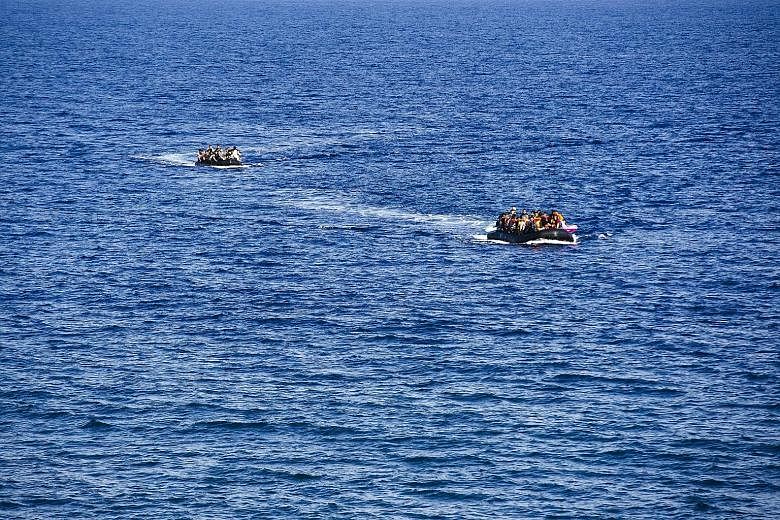Once rare events held in exceptional circumstances, summits of European Union leaders have recently become an almost monthly feature.
Still, the gathering of the heads of the 28 EU member-states, which begins in Brussels later today, is significant, for it is the first such European summit likely to adopt concrete measures to curb the huge inflow of refugees now pouring into the continent.
After a hiatus of months, European governments are finally forging a consensus on what should be done to safeguard their borders.
EU leaders are certain to give their formal approval to a decision taken by Europe's home ministers earlier this month to speed up the expulsion of refugees who have been refused asylum either because they do not come from war zones, such as Syria, or because they cannot prove they are fleeing persecution, a legal precondition for gaining asylum.
Although more than half of all those applying for asylum in the EU are denied that status and therefore have no further legal grounds for staying, few are ever deported.
Instead, asylum seekers either go underground and disappear into the illegal economy, or simply flee the country that rejected them and lodge fresh asylum applications in another EU member-state.
According to the new regulations scheduled to be approved today, "those who do not require international protection must return to their country of origin speedily", said Luxembourg Foreign Minister Jean Asselborn, whose country holds the rotating EU presidency.
And, if the authorities suspect that those refused asylum may abscond, EU member-states are encouraged to use "detention as a legitimate measure of last resort", locking up failed asylum seekers, pending their deportation.
EU member-states will be urged today to reinforce "their pre-removal detention capacity" to cope with the increased numbers of asylum seekers.
A more draconian measure is also likely to be approved at the EU summit, granting Frontex - the EU's border protection agency, which at the moment has only a narrow remit to detect migration from outside the continent - new powers to help with the deportation of illegal immigrants.
The agency's staff, numbering around 300 now, is likely to be doubled through the creation of "Rapid Return Intervention Teams", whose job will be to arrange deportation flights and convoys.
Frontex will also help with opening "Migration Liaison Offices" in key African and Middle Eastern countries. The main task of these offices will be to ensure that countries which are the main sources of asylum seekers will honour their agreements with the EU by pledging to readmit those expelled from Europe.
But the biggest innovation on the agenda for today's EU summit is a proposal to establish offshore "asylum reception centres", where refugees could be fed and housed with the help of European money, as long as they are kept outside the European Union's territory.
The idea holds considerable appeal because it allows the EU to claim it is both dealing with migration pressures and also reducing the number of asylum seekers admitted for settlement on the continent.
Initially, EU civil servants were hoping to present political leaders at today's summit with more concrete proposals for the establishment of such reception centres in Turkey, with the help of a €1 billion (S$1.6 billion ) EU grant. But the latest terrorist attacks, which killed almost 100 people in the Turkish capital Ankara, have put such talks on hold, so EU leaders will probably just agree that planning for offshore immigration centres should continue at full speed.
"This is good, yes, but not enough," Mr Dimitris Avramopoulos, the top EU official responsible for migration, pointed out on the eve of the summit. He admitted that all the measures on the agenda today may take a further year before they are fully implemented.
Still, they break the current European political logjam by pointing towards a more coherent EU-wide immigration approach. And one which will be considerably tougher on new migrants.

